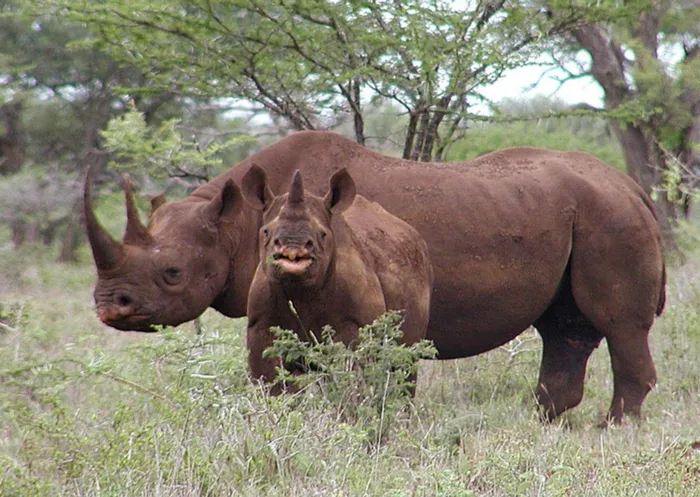Rhino horn ban is back

A black rhino and a calf. File picture: AP Photo/U.S. Fish and Wildlife Service/Karl Stromayer A black rhino and a calf. File picture: AP Photo/U.S. Fish and Wildlife Service/Karl Stromayer
The ban on domestic rhino horn trading is back. The seven-year old ban was lifted by the Supreme Court last month in the aftermath of a court case by the world’s biggest private rhino breeder. Now the government has gone to the Constitutional Court on appeal, which means the moratorium will stay in place for now.
Environmental Affairs minister Edna Molewa confirmed yesterday that she had filed an application for leave to appeal to the Concourt on Monday. This meant that the February 2008 moratorium on selling rhino horns within South Africa’s borders would remain in place until the matter was decided by the Concourt.
The moratorium was challenged in court by rhino rancher Johan Kruger in 2012 and by rancher John Hume in 2015. The High Court ruled in favour of them on the basis that the government failed to follow adequate public consultation processes before declaring the moratorium. Last month, however, the Supreme Court of Appeal dismissed Molewa’s application for leave to appeal.
Hume and Kruger now have 10 days to respond in writing, indicating whether the application for leave to appeal would be opposed. While Hume and other private rhino owners argue that the moratorium fuelled the dramatic increase in rhino poaching since 2008, several conservation groups fear that lifting the moratorium could fuel a further round of horn stockpiling and promote the illegal smuggling of local rhino horns to China and other Eastern nations.
Colman O’Criodain, a wildlife trade policy analyst for the conservation group WWF said: “It is hard to see any positive conservation benefits from lifting the moratorium on domestic trade in rhino horn, particularly when rhino poaching figures are at record highs.
“There is no domestic demand for rhino horn in South Africa, so it is inconceivable that anyone would buy it - unless they intend to sell it abroad illegally or are speculating that international trade will be legalised,” he said last month.
tony.carnie@inl.co.za